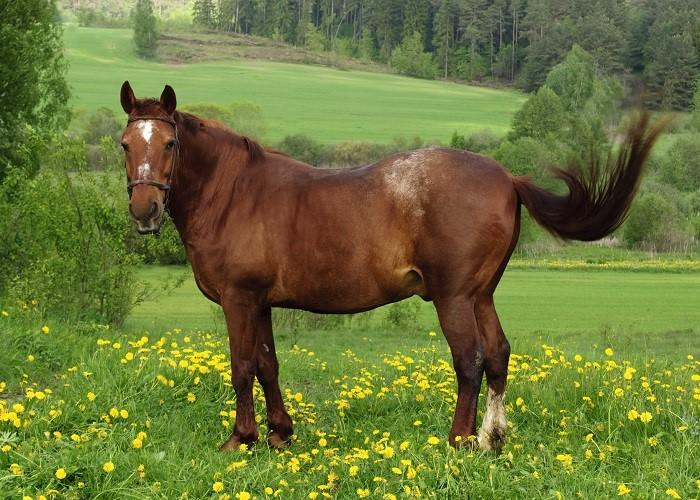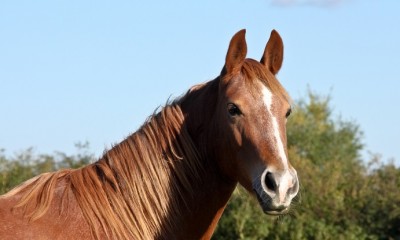A horse is a wonderful addition to any homestead, but owning one is a huge undertaking. Before even thinking about purchasing or adopting any equine, be sure to consider each of these seven factors.
1. Do you have enough space?
Horses are not small animals and need plenty of room. About half an acre per horse is a good estimate of the space you will need. While some choose to keep horses in small stalls and paddocks, keeping your horse in a large paddock or pasture area is much healthier and cost-effective in the long run. If you do not have the space to keep a horse on your own property, look into pasture board at a local barn, or even leasing some land nearby. Besides the physical space needed to keep the horse, you will also need space to keep hay, equipment and compost piles for manure (if you choose to compost).
2. Are you willing to pay a lot?
Horses are not cheap. Before making your final decision on purchasing a horse, evaluate your finances. You will need to purchase hay, equipment, fence and barn repair materials, and tack. You also need to consider vet and farrier bills as well as training and lessons. Most horse owners find themselves spending around $2,000 a year per horse. If you keep your horse at a boarding facility or decide you will be using your horse for showing, your annual costs will increase significantly.
Everything You Need To Know To Become A Self-Sufficient Homeowner
3. Do you have enough time?
Owning a horse takes time — and lots of it. If your day is already full between work and family time, it’s probably not the best point in your life for a horse. Horses not only need grooming, exercise and care, but they are also much healthier when they receive regular attention. You will also need to set aside time for training. A horse that is not receiving regular training lessons will develop bad and potentially dangerous habits. It takes time to keep up on facilities like fencing and barn work. However, if you keep your horse at a boarding facility, this will not be necessary.
4. Are you knowledgeable?
It’s not a great idea to jump right into horse ownership without any knowledge of horses. Taking riding lessons and some courses on equine care is beneficial. Try to meet as many horse people as possible before looking for a horse. Ask lots of questions, read lots of books and learn as much as possible. You should know how to properly feed, handle, ride, house, groom and apply basic first aid. Your safety and the horse’s health mostly rely on what you know.
5. What about your facilities?
Make sure you have the proper facilities. If you are keeping a horse on your own property, you will need to have proper housing and fencing. Electric, wood and no-climb are all safe fencing options. Stay far away from barb wire when fencing for horses, unless you want a big vet bill. Make sure your fence is at least five-feet tall, structurally sound, and has no areas where a horse could get caught. As far as shelter goes, a well-built three-sided structure is all you will need. Make sure the inside of the structure has kick walls to prevent a horse from kicking through and injuring himself. The structure should be at least eight-feet high and about 100 square feet per horse. Make sure the structure has nothing sticking out like pieces of metal or nails that could hurt a horse. Other facilities needed include a covered area to store hay and a weather-tight space for housing tack.
Want The Best Chemical-Free, All-Natural Insecticide — For Your Garden AND Home?
6. Is your equipment sufficient?
In addition to facilities, ensure you have the proper equipment. You will need halters, leads and riding tack as well as buckets, wheelbarrows and manure forks. Quality equipment takes time and money to choose and keep up. It is important to pick safe, well-fitted and high-quality tack only. Although it will cost you more upfront, you will save money in the long run. Same thing goes for buckets and forks; choose high quality over cheap. It’s a good idea to have an experienced horse person help you select tack and equipment. Owning a trailer or knowing friends who own a horse trailer is very important. You need to be able to safely move your horse from one location to another. If you do purchase a trailer, you will also need a vehicle capable of safely pulling its weight.
7. What type of horse are you wanting?
After considering all of the above and if you still feel you are fully capable of owning a horse, it’s time to consider choosing a horse. Think about what you will be using your horse for. If your horse will be a backyard horse and occasionally used for a trail ride or small shows, rescued is the best breed! Find a horse in need of a good home and provide it with one.
Off-the-track thoroughbreds are a popular option and often re-homed and used for everything from trail riding and endurance, to jumping and dressage. Some rescues are breed specific, while others have everything under the sun. Take an experienced horse owner with you to the rescue to help you make a good choice. If you will be using your horse for higher level shows or other breed-specific tasks, it may be necessary to purchase a horse from a breeder. If you choose to do this, it’s important the breeder is reputable. Take a trainer with you to access the horse’s training level and ride the horse to make sure it’s a good match. Whether you choose to adopt or purchase a horse, it’s important to have the horse’s health examined by a vet before bringing it home.
If you find you are not in the position to own a horse, you still may have options. Leasing a horse is a great way to ride and have fun without the commitment of ownership. Another option to consider is co-ownership. If you don’t have the time or money, this is a wonderful option.
No matter how you do it, spending time with a horse is a wonderful experience that is well worth the time, effort and money.
What advice would you give someone who is looking to purchase a horse? Leave your suggestions in the section below:
 Off The Grid News Better Ideas For Off The Grid Living
Off The Grid News Better Ideas For Off The Grid Living






